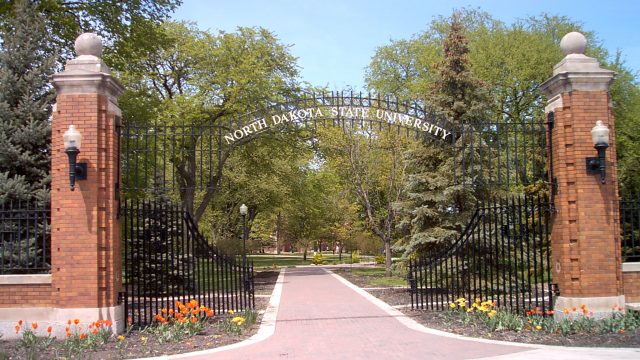Rick Holman: Measure 3 Has Unknown Consequences

This fall the North Dakota general election ballot has eight measures. Please make sure that you prepare yourself to understand each of them before you vote. This article addresses Measure 3.
Measure 3 changes the North Dakota Constitution to implement major changes in the way our colleges and universities are managed and governed. For the past seventy years a citizen board and commissioner or chancellor have worked with college presidents creating a system that is one of the best in the nation. Pioneers who settled and organized our state recognized the need for access to quality education and put enabling language into the North Dakota Constitution. In North Dakota, whether you are a recent high school graduate or a person seeking to change careers, you have access to a variety of higher education options. You can attend a nearby college or take classes online. Once a selected program is completed the knowledge gained, your credentials will be recognized throughout the US as being from a quality institution.
As a farm kid growing on the border of Steele and Traill counties, close to Mayville, Fargo and Grand Forks I had several options for post high school education. Graduating from Clifford High School in a graduating class of ten, I first chose the “big school”, NDSU, but soon learned that Mayville was a better fit to continue the type of close and personal education I was used to. Our current system still gives our young people choices. Eventually, I did attend both NDSU and UND for another degree but I’m glad all those initial options were available or my life and the life of my family may have been very different.
I believe Measure Three is a poorly written attempt to react to the recent controversy between the State Board of Higher Education (SBHE) and the North Dakota Legislature. It was sponsored by Representatives Carlson, Martinson, Nathe, and Vigesaa and Senators Grindberg, Hogue, and Schaible; a group of legislators wanting more government control over higher education. This change in the ND Constitution from an independent eight member volunteer board who hires a chancellor to a three-member commission appointed by the governor and approved by the legislature creates a potentially serious challenge to accreditation by the Higher Learning Commission (HLC). Measure Three alters the ND Constitution to create a unique higher education governance structure. Of the other 49 states, not one has the structure proposed in Measure 3.
The HLC requires that institutions meet certain uniform guidelines to be granted accredited status, sending a message that a standard of excellence has been met. My degrees from accredited institutions tell others that I graduated from a program that has met standards recognized throughout the United States.
Dr. Ellen Chaffee, during her professional career, spent time at three North Dakota universities as well as the SBHE office. She made the following statement after reviewing the wording of Measure 3:
(Measure Three) “…Jeopardizes the accreditation status of all NDUS institutions. Without accreditation, students cannot get federal student aid or transfer their courses to accredited institutions. Those who can will transfer out of state before the loss of accreditation takes effect. The value of all NDUS degrees will decline and the institutions will be unable to hire qualified faculty. Ultimately, institutions will close.”
A second troublesome issue with Measure Three deals with the potential for a change in mission.
Currently, the ND Constitution specifically lists eight institutions and cities with the following statement of location and mission:
“The state university and school of mines, at Grand Forks, with their substations; The state agricultural college and experiment station, at Fargo, with their substations; The school of science, at Wahpeton; The state normal schools and teachers colleges, at Valley City, Mayville, Minot, and Dickinson; The school of forestry, at Bottineau.”
Measure 3 lists all eleven cities, but is less specific about higher education presence or mission. It states:
“..., the commission shall provide “public higher education at sites that include Bismarck, Bottineau, Devils Lake, Dickinson, Fargo, Grand Forks, Mayville, Minot, Valley City, Wahpeton, and Williston.”
Providing “public higher education at sites…” is a much different statement from current law and could allow the Commission to make major changes in a community by determining which facilities are physically present or by regulating what programs of learning or research exist at a certain school.
Finally, it’s important to note that, because this is a change to the North Dakota Constitution, it will be nearly impossible for the newly created Commission, the Governor or the Legislature to fix any of the unknown consequences of this new governing structure.
This dramatic and unnecessary change in governance jeopardizes our excellent system of colleges and universities. I will be voting no.




